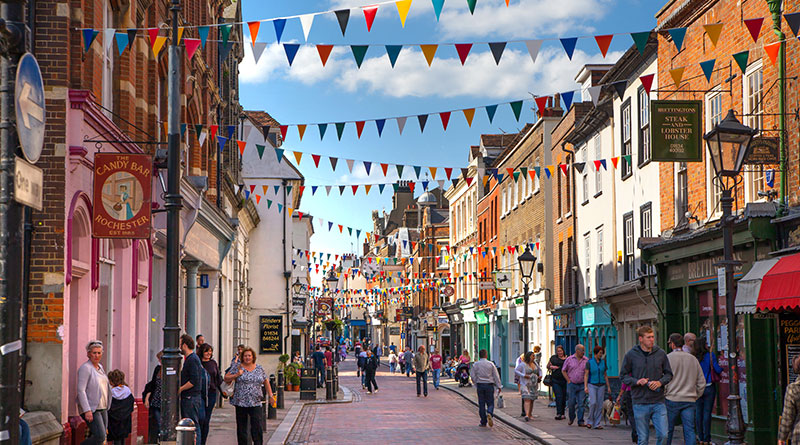UK Inflation Rises to 3.5% – Highest for a Year

A sharp rise in utility costs has driven the UK’s inflation rate to its highest level in over a year, with April’s figure climbing to 3.5%, up from 2.6% in March, according to the latest data from the Office for National Statistics (ONS).
The increase has outstripped forecasts and could influence the economic outlook for the remainder of the year.
From 1 April, households across the country faced higher charges for water, electricity, and gas, and businesses saw costs of employing staff rise and a reduction in business rate relief.
The cumulative effect of these increases has placed additional pressure on consumers and businesses alike, with inflation now well above the Bank of England’s long-term target of 2%.
While interest rates had been expected to fall twice this year, analysts now believe that only one reduction may materialise, if any. This shift in expectations is likely to have a knock-on effect on consumer confidence and spending habits — key factors for the hospitality and licensed trade sectors as they continue to recover from the past few turbulent years.
The Bank of England has previously indicated that inflation may peak at around 3.7% between July and September 2025, before beginning a gradual descent. However, there are growing concerns that progress in reducing inflation is beginning to stall.
Kate Nicholls, Chief Executive of UKHospitality, said:
“This significant increase in inflation is unsurprising given the £3.4 billion in annual cost increases that hit hospitality in April.
“It’s clear that, on top of continuing hikes in utility prices, the raft of additional costs from the Budget, which came into force in April, is putting unsustainable cost pressure on already strapped businesses. Regrettably, that forces up prices and so fuels inflation.
“This strengthens the need to tackle the ongoing cost of doing business crisis. The Government must look to bring down costs for businesses and it’s critical that the Bank of England meets market expectations to lower interest rates in the coming months.”
Saxon Moseley, partner and head of leisure and hospitality at leading audit, tax and consulting firm RSM UK, said:
“It’s surprising to see restaurant and hotels inflation eased to 2.7% in April year-on-year. However, operators have clearly been drip-feeding price increases since the start of the year to offset the rise in employers’ NIC and National Minimum Wage. In fact, prices have increased by 1.3% already since December.
“Of bigger concern to operators will be the jump in food inflation to 3.4% in April year-on-year, with prices up 0.7% month-on-month. When factoring in alcohol, the rise in food inflation jumps to 4% year-on-year, which is yet another cost increase that will put a dent in operators’ margins. Unfortunately, there’s only so much they can keep increasing prices, particularly as consumer confidence is already fragile. Operators must tread a fine line between passing on these costs and not putting consumers off.”
Huw Pill, the Bank’s chief economist and a member of the Monetary Policy Committee, recently expressed concern over the pace of rate cuts. He warned that the current inflation trend suggests underlying pressures in the economy may not be easing as smoothly as anticipated.
